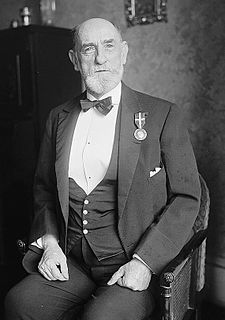A Quote by Theodore Parker
The books which help you most are those which make you think the most. The hardest way of learning is by easy reading; every man that tries it finds it so. But a great book that comes from a great thinker, — it is a ship of thought, deep freighted with truth, with beauty too.
Related Quotes
Reading has always been my home, my sustenance, my great invincible companion. "Book love," Trollope called it. "It will make your hours pleasant to you as long as you live." Yet of all the many things in which we recognize some universal comfort...reading seems to be the one in which the comfort is most undersung.
Nor has science sufficient humanity, so long as the naturalist overlooks the wonderful congruity which subsists between man and the world; of which he is lord, not because he is the most subtile inhabitant, but because he is its head and heart, and finds something of himself in every great and small thing, in every mountain stratum, in every new law of color, fact of astronomy, or atmospheric influence which observation or analysis lay open.
There is a wonderful book called "Gandhi's Truth," by Erik Erikson, the psychologist. It is a great book. And I remember reading that and thinking about this connection between what we think in our personal lives and how that manifests itself in our politics. Those are two books, just off the top, that I think are sort of representative of reading that I did at that time. I never get a chance to read anymore.
And most of all, books. They were, in and of themselves, reasons to stay alive. Every book written is the product of a human mind in a particular state. Add all the books together and you get the end sum of humanity. Every time I read a great book I felt I was reading a kind of map, a treasure map, and the treasure I was being directed to was in actual fact myself.
We, Equality 7-2521, were not happy in those year in the Home of the Students. It was not that the learning was too hard for us. It was that the learning was too easy. This is a great sin, to be born with a head which is too quick. It is not good to be different from our brothers, but it is evil to be superior to them. The Teachers told us so, and they frowned when they looked at us.
Keynes was a great economist. In every discipline, progress comes from people who make hypotheses, most of which turn out to be wrong, but all of which ultimately point to the right answer. Now Keynes, in 'The General Theory of Employment, Interest and Money,' set forth a hypothesis which was a beautiful one, and it really altered the shape of economics. But it turned out that it was a wrong hypothesis. That doesn't mean that he wasn't a great man!
For there is a great difference in delivery of the mathematics , which are the most abstracted of knowledges, and policy , which is the most immersed. And howsoever contention hath been moved , touching a uniformity of method in multiformity of matter, yet we see how that opinion, besides the weakness of it, hath been of ill desert towards learning, as that which taketh the way to reduce learning to certain empty and barren generalities; being but the very husks and shells of sciences, all the kernel being forced out and expulsed with the torture and press of the method.
What actions are the most excellent? Those, certainly, which most powerfully appeal to the great primary human affections: to those elementary feelings which subsist permanently in the race, and which are independent of time. These feelings are permanent and the same; that which interests them is permanent and the same also.





































